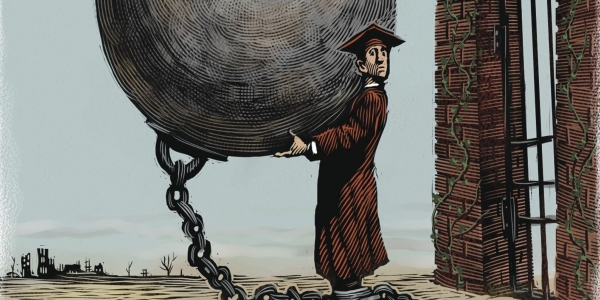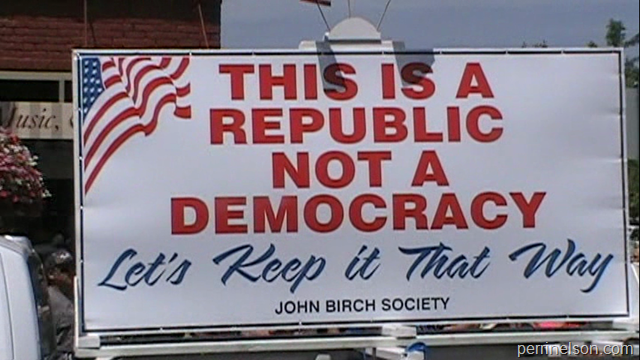8 Reasons Young Americans Don't Fight Back: How the US Crushed Youth Resistance
By Bruce E. Levine
Progressive America Rising via Alternet.org
July 31, 2011 - Traditionally, young people have energized democratic movements. So it is a major coup for the ruling elite to have created societal institutions that have subdued young Americans and broken their spirit of resistance to domination.
Young Americans—even more so than older Americans—appear to have acquiesced to the idea that the corporatocracy can completely screw them and that they are helpless to do anything about it. A 2010 Gallup poll asked Americans “Do you think the Social Security system will be able to pay you a benefit when you retire?” Among 18- to 34-years-olds, 76 percent of them said no. Yet despite their lack of confidence in the availability of Social Security for them, few have demanded it be shored up by more fairly payroll-taxing the wealthy; most appear resigned to having more money deducted from their paychecks for Social Security, even though they don’t believe it will be around to benefit them.
How exactly has American society subdued young Americans?
1. Student-Loan Debt. Large debt—and the fear it creates—is a pacifying force. There was no tuition at the City University of New York when I attended one of its colleges in the 1970s, a time when tuition at many U.S. public universities was so affordable that it was easy to get a B.A. and even a graduate degree without accruing any student-loan debt. While those days are gone in the United States, public universities continue to be free in the Arab world and are either free or with very low fees in many countries throughout the world. The millions of young Iranians who risked getting shot to protest their disputed 2009 presidential election, the millions of young Egyptians who risked their lives earlier this year to eliminate Mubarak, and the millions of young Americans who demonstrated against the Vietnam War all had in common the absence of pacifying huge student-loan debt.
Today in the United States, two-thirds of graduating seniors at four-year colleges have student-loan debt, including over 62 percent of public university graduates. While average undergraduate debt is close to $25,000, I increasingly talk to college graduates with closer to $100,000 in student-loan debt. During the time in one’s life when it should be easiest to resist authority because one does not yet have family responsibilities, many young people worry about the cost of bucking authority, losing their job, and being unable to pay an ever-increasing debt. In a vicious cycle, student debt has a subduing effect on activism, and political passivity makes it more likely that students will accept such debt as a natural part of life.
2. Psychopathologizing and Medicating Noncompliance. In 1955, Erich Fromm, the then widely respected anti-authoritarian leftist psychoanalyst, wrote, “Today the function of psychiatry, psychology and psychoanalysis threatens to become the tool in the manipulation of man.” Fromm died in 1980, the same year that an increasingly authoritarian America elected Ronald Reagan president, and an increasingly authoritarian American Psychiatric Association added to their diagnostic bible (then the DSM-III) disruptive mental disorders for children and teenagers such as the increasingly popular “oppositional defiant disorder” (ODD). The official symptoms of ODD include “often actively defies or refuses to comply with adult requests or rules,” “often argues with adults,” and “often deliberately does things to annoy other people.”
Many of America’s greatest activists including Saul Alinsky (1909–1972), the legendary organizer and author of Reveille for Radicals and Rules for Radicals, would today certainly be diagnosed with ODD and other disruptive disorders. Recalling his childhood, Alinsky said, “I never thought of walking on the grass until I saw a sign saying ‘Keep off the grass.’ Then I would stomp all over it.” Heavily tranquilizing antipsychotic drugs (e.g. Zyprexa and Risperdal) are now the highest grossing class of medication in the United States ($16 billion in 2010); a major reason for this, according to theJournal of the American Medical Association in 2010, is that many children receiving antipsychotic drugs have nonpsychotic diagnoses such as ODD or some other disruptive disorder (this especially true of Medicaid-covered pediatric patients).






 By Les Leopold
By Les Leopold
 By Sen. Bernie Sanders
By Sen. Bernie Sanders



 Presented by CPC co-chairs Reps. Raúl M. Grijalva and Keith Ellison and backed by members of the caucus' Budget Task force—Reps. Jim McDermott, Jan Schakowsky, Barbara Lee and Mark Pocan—the plan describes how smart investments, not deep cuts to key programs, would create almost 7 million jobs over the first year of its implementation.
Presented by CPC co-chairs Reps. Raúl M. Grijalva and Keith Ellison and backed by members of the caucus' Budget Task force—Reps. Jim McDermott, Jan Schakowsky, Barbara Lee and Mark Pocan—the plan describes how smart investments, not deep cuts to key programs, would create almost 7 million jobs over the first year of its implementation. 


![[PDA - Heathcare NOT Warfare - Sign the Petition.]](http://pdamerica.org/images/ads/HealthNotWar_final.jpg)


